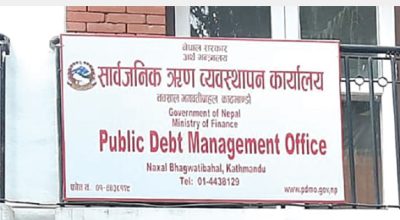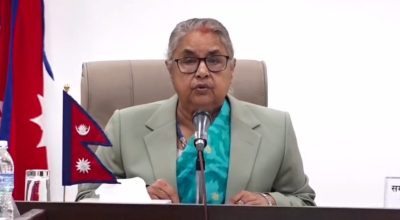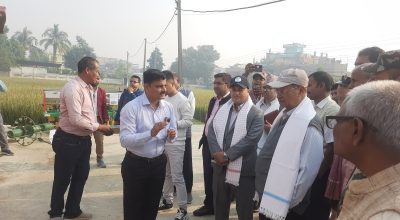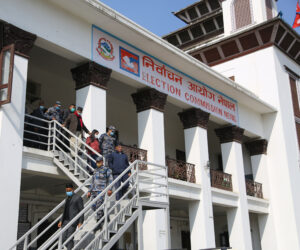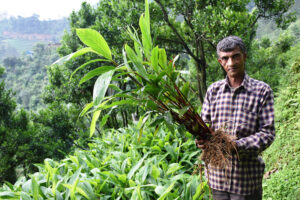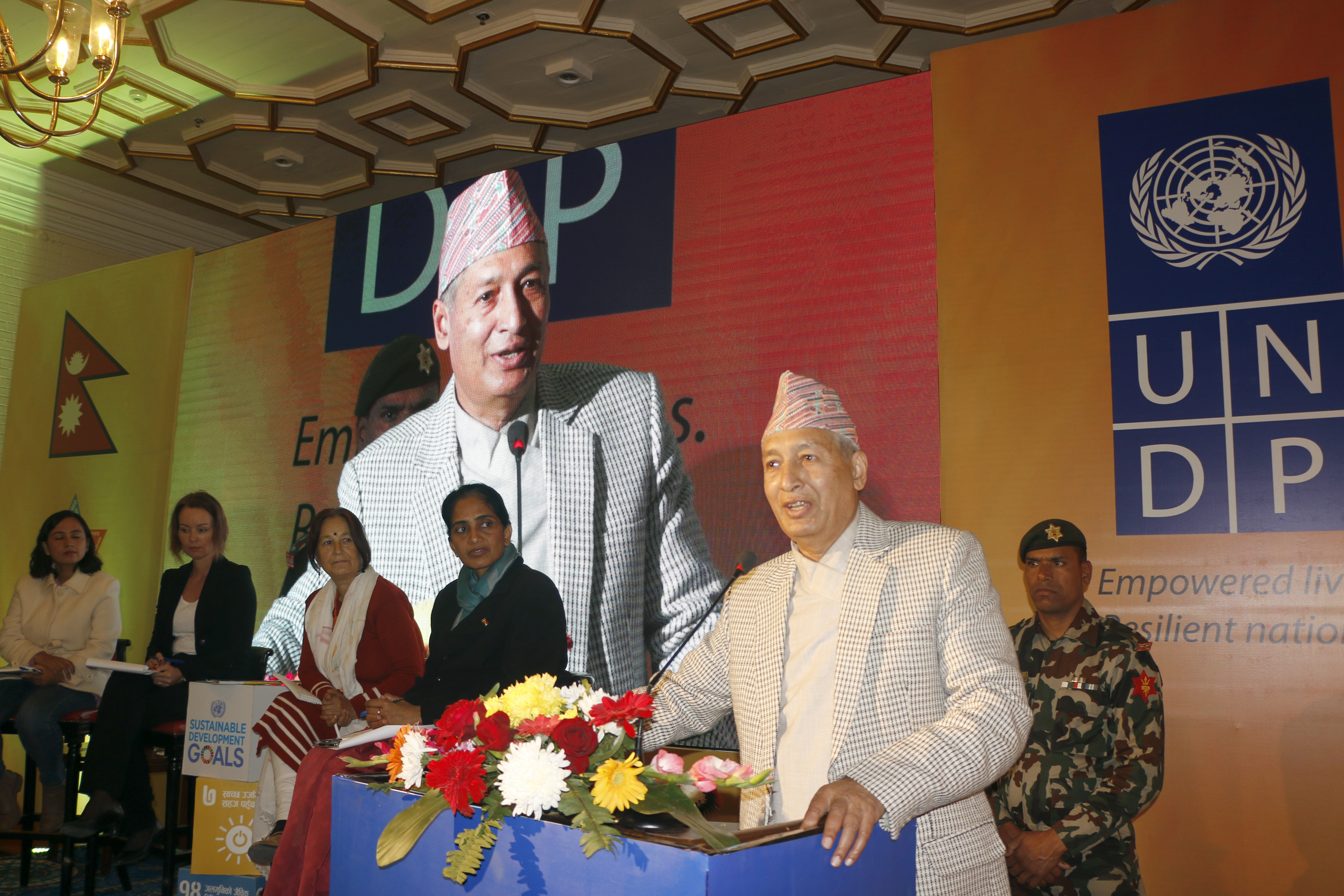
-Ramesh Lamsal/RSS
Kathmandu, Dec 10, 2019 : The per capita gross national income has increased by 130.5 percent in the last 28 years owing to the positive initiations made in education, health and employment sectors in the country.
This is stated in the 2019 Human Development Report (HDR), entitled “Beyond income, beyond averages, beyond today: inequalities in human development in the 21st Century,” made public by the United Nations Development Programme (UNDP).
According to the Human Development Report unveiled by the UNDP, Nepal stands in the medium position, 147 out of 180 countries, with 0.579 Human Development Index Value.
Finance Minister Dr Yuba Raj Khatiwada released the Report at a programme here today. It showed that the per capita income of Nepalis has increased by approximately 130.5 percent between 1990 and 2018.
The Human Development Index value and GDI ranking values stands at 0.579 in 2018, which puts Nepal among the countries with moderate HDI ranking. Nepal is placed in the 147th position in the ranking among 189 countries and regions. Nepal’s ranking is equal to that of Kenya’s.
Nepal’s HDI value had increased from 0.380 to 0.579 from 1990 to 2018, which according to the UNDP, is a similar growth by 0.52 percent.
Similarly, it is stated that the average age of birth rate increased by 16.1years, the median year of school education by 2.8 years and the expected year of school, education by 4.7 years.
Among the countries of South Asia, India is in the 129th position, Bhutan is in the 134th position, Bangladesh is in the 135th position and Pakistan is in the 152nd position in the HDI ranking.
UNDP has categorized the countries into very high HDI, high HDI, medium HDI and low HDI. Nepal is in the category of medium HDI.
It is stated in the Report that Bepal, Bangladesh and Pakitan have achieved different level of progress in the context of increasing their respective HDI.
Nepal’s HDI of 0.579 in 2018 is low compared to the average HDI of 0.634 HDI of countries with medium HDI while it is less than the average HDI of 0.642 of South Asian countries. In the context of South Asia, the HDI ranking of Afghanistan and Sri Lanka which to some extent have similarity with Nepali population, is in the 170th and 171st position respectively.
The life expectancy in Nepal is 70.5 years, that of Afghanistan is 65.5 years and that of Sri Lanka is 76.8 years.
The per capita gross national income of Nepal in 2011 in per capita ratio of US Dollars was 2,748 while that of Afghanistan was 1,746 US Dollars and that of Sri Lanka was 11,611 US Dollars.
According to the UNDP, the inequality adjusted human development index is the basic measure of the HDI and the human development achievement within the country.
The report provides a picture of basic calculation of Inequality-adjusted Human Development Index (IHDI), Human Development Index and the human development achievements within the country, according to the UNDP.
The index reflects the existing inequalities in human development of the country. IHDI adjusts the HDI value for inequality within countries in each of its components (health, education and income).
The report states that loss in human development due to inequality is presented through a gap between the HDI and IHDI.
IHDI is calculated in 150 countries. Sri Lanka’s loss in human development due to inequality is 12.1 percent and the average loss of medium human development countries is 25.9 percent and this is 25.9 percent in the South Asia and in case of Nepal, is it 24.9 percent.
Multidimensional Poverty Index (MPI) in human development measurement began in 2010 and the report incorporates the status of health, education and people’s living standards.
Two indicators each are used to measure the status of health and education and six for the measurement of living standards.
Thirty-four percent population is under the multidimensional poverty in Nepal and 22.3 percent are vulnerable to it.
The volume of scarcity realised by the people under multidimensional poverty who have less than 1.90 US dollar daily purchasing capacity is 43.6 percent.
People in income poverty are facing scarcity for health, education and decent living standard.
Increase in income for increase in equality: Minister Khatiwada
Minister for Finance Dr Khatiwada has argued that to achieve equality, we should ensure increase in our income too.
Stating that the Human Development Index (HDI) would incorporate different dimensions of society, Minister Khatiwada highlighted the need for reforms at policy level to equal distribution of resources.
Furthermore, stating that Nepal was witnessing poverty reduction rate at 1 per cent yearly yet, the Minister, asserted that it was important for Nepal to take cognizance of the development practices and measures taken by the developed countries to reduce poverty and address inequality and learn from them.
Arguing that all-sided cooperation and collaboration was a prerequisite for achieving equitable society, he said, “All senior citizens from all strata of our society were receiving their allowances equally.”
“The rich and poor senior citizens receiving the equal amount of senior citizen allowances seem to have given the people an impression that it would give a rise to some inequalities, but it will not,” assured the Minister.
Also speaking in the programme, National Human Rights Commission member Dr Ram Kumar Phuyal, Tribhuvan University Registrar Dr Dilliram Uprety, UN Resident Representative in Nepal, Valerie Juliand among others univocally pointed out the need for minutely studying various dimensions of HDI to ensure that shortcomings were addressed.
—





